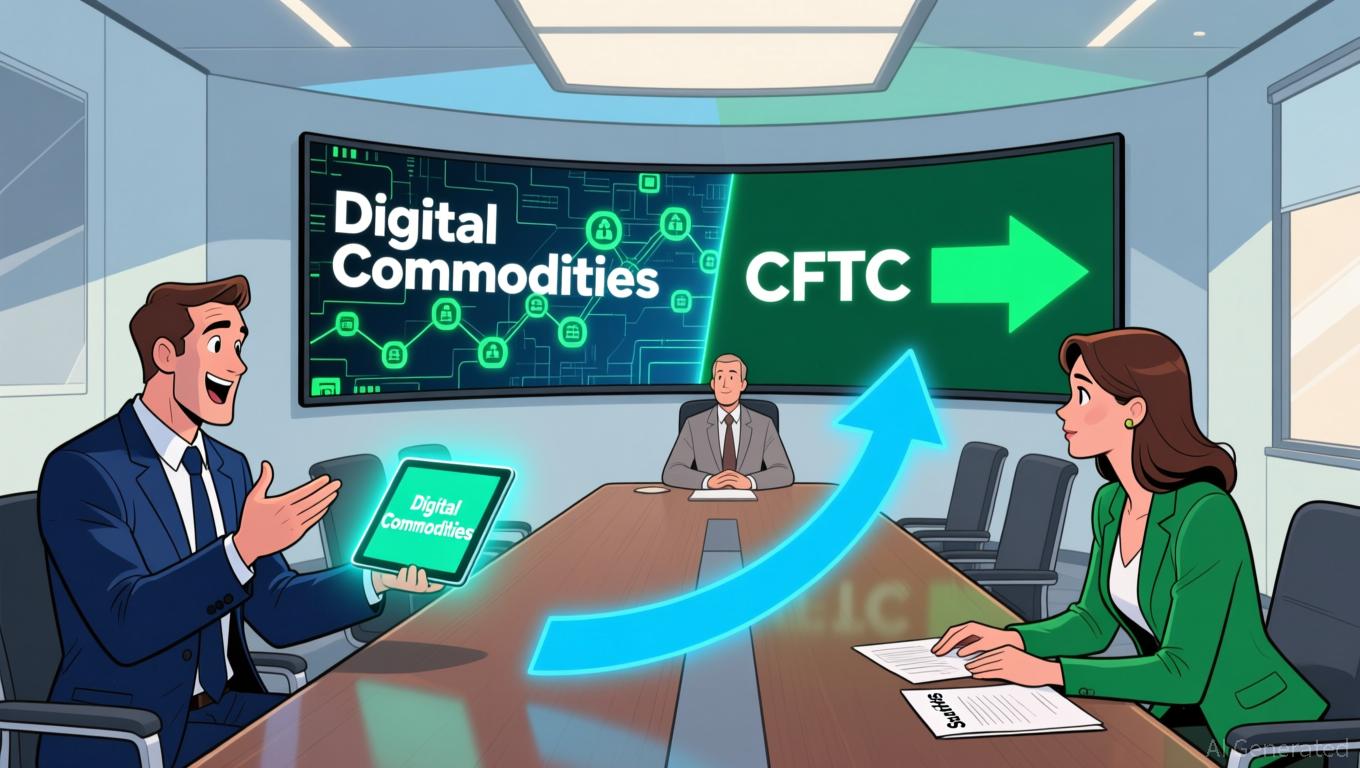SEC and CFTC Dispute Crypto Oversight Amid Scott’s December Initiative
- U.S. Senator Tim Scott advocates a December vote on crypto regulatory legislation to resolve SEC-CFTC jurisdiction conflicts over digital assets. - Senate Agriculture Committee proposes expanding CFTC oversight of "digital commodities," while Banking Committee grants SEC authority over "ancillary assets" with decentralization exemptions. - Divergent frameworks highlight tensions between market stability (CFTC) and innovation adaptability (SEC), with unresolved issues like DeFi regulation and dual complia
Tim
Senator Scott, a prominent figure in shaping cryptocurrency legislation, is advocating for a Senate vote in December on a bill package designed to clarify how digital assets are regulated in the United States. This initiative comes as
The proposals, introduced by the Senate Agriculture and Banking Committees, reflect different strategies for establishing oversight boundaries. The Agriculture Committee’s version, led by Senators John Boozman and Cory Booker, would broaden the CFTC’s jurisdiction to cover “digital commodities” and their spot trading, treating cryptocurrencies similarly to established commodities such as oil and gold. Under this plan, exchanges, brokers, and dealers would need to register with the CFTC, comply with capital and custody standards, and keep customer assets separate to avoid conflicts of interest. The plan also
On the other hand, the Senate Banking Committee’s draft—known as the Responsible Financial Innovation Act—would give the SEC clear authority over “ancillary assets,” which includes fungible digital commodities distributed via investment contracts. This proposal introduces a conditional “escape route” for tokens that can prove they are sufficiently decentralized, enabling them to move from being classified as securities to commodities. For example,

The existence of these competing proposals underscores the challenges of regulating a fast-changing sector. The Agriculture Committee’s approach focuses on market stability and protecting retail investors, in line with the CFTC’s traditional role in commodities. In contrast, the Banking Committee’s plan aims to build a flexible system that can evolve with new technology, though some critics warn that leaving key definitions for future rulemaking could extend regulatory uncertainty.
With Senator Scott and his colleagues pushing for a December decision, the results could significantly alter the regulatory environment for crypto in the U.S. More defined regulatory boundaries would lower enforcement risks for businesses, encourage institutional participation, and offer clearer guidance for developers and traders. Ultimately, the effectiveness of the final legislation in balancing innovation with investor safeguards will shape its lasting influence on the industry.
Disclaimer: The content of this article solely reflects the author's opinion and does not represent the platform in any capacity. This article is not intended to serve as a reference for making investment decisions.
You may also like
Panic Rising, Miners Buying: Is Bitcoin Near Its Breaking Point?
Crypto Airdrops' Growing Centralization Threatens the Principles of Decentralized Fairness
- aPriori's crypto airdrop sparked controversy after one entity claimed 60% of tokens, raising transparency and centralization concerns. - Airdrop farming tactics, like Arbitrum's $3. 3M consolidation across 1,496 wallets, undermine decentralized fairness for retail investors. - HTX DAO's 90% growth in token subscriptions ($9B total) highlights deflationary strategies boosting scarcity and market value. - IPO market volatility and regulatory risks have pushed projects toward airdrops for liquidity, despite

Bitcoin News Today: Bitcoin ETFs Offload $2.96 Billion in November, Exceeding Mt. Gox Repayment Amounts
- Bitcoin ETFs sold $2.96B in November, exceeding Mt. Gox's $953M debt repayment transfers, signaling extreme bearish sentiment. - BlackRock's IBIT led outflows with $2.1B, including a $523M single-day withdrawal, as BTC prices fell 28% below $90,000. - Market analysts warn ETF redemptions could accelerate Bitcoin's decline, citing technical indicators like the "death cross" and weak institutional sentiment. - The sell-off contrasts Bitcoin's historical November rallies, driven by macroeconomic fears and A

Bitcoin Updates Today: Institutions Show Faith as Retail Investors Withdraw—Bitcoin Faces a Critical Year-End Challenge
- Bitcoin stabilizes above $90,000 amid retail selling and institutional hedging as year-end volatility risks grow. - U.S. spot Bitcoin ETFs face $2.6B outflows as investors shift to cash/bonds post-government shutdown. - Harvard boosts $443M IBIT stake while Wisconsin liquidates its position, highlighting institutional divergence. - Market indicators show 50% odds BTC closes 2025 below $90K, with $98K and $85K key support levels identified. - Whale accumulation of 375,000 BTC contrasts with retail capitul
